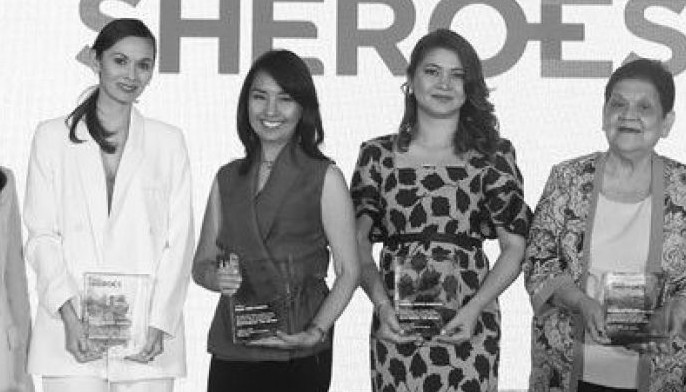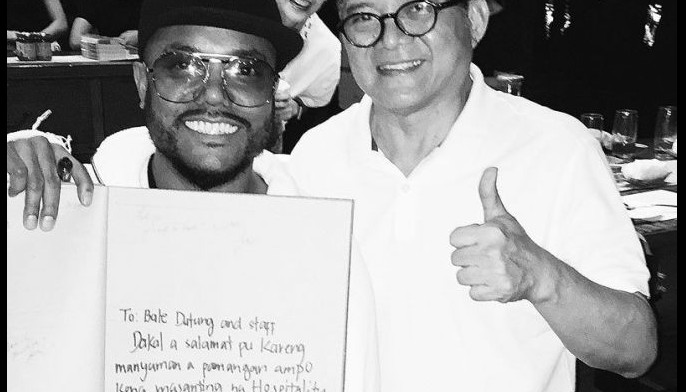Futkaleros play - and pay - it forward
MANILA, Philippines - Six years ago, Mark Dennis Balbin started his journey in street football when he became a member of Tondo Futkaleros, a team mentored by seasoned player Peter Amores under his Football sa Kalye (FutKal) program.
Now 23, Balbin – like many of his contemporaries – has become a mentor, sharing his knowledge of the game with a new generation of futkaleros, not just in Tondo but in many other disadvantaged communities in the country.
“I guess they are all inspired to teach football to the next generation, and we saw the potential. It’s a good way to get the communities to work together,†Amores said during the Sama-Sama Games held earlier this month in Boracay.
“As the program gets bigger and the kids get older, they pass on and continue with the program,†he added.
Balbin said he volunteered to conduct street football clinics for young children as he understands how it can help develop a person’s values and character.
“The FutKal program is very effective for kids,†he told The STAR in Filipino. “It teaches you discipline, respect.â€
“Since I have the time, this is what I want to do – share, share, share,†he added.
This, however, is not as easy as it sounds. Balbin is currently a senior hotel and restaurant management student at the Philippine Women’s University. He also works as a call center agent.
He worries that there might come a time when commitments would prevent him from conducting clinics.
But right now, it’s all about time management. He said his regular daily schedule is divided into four hours at work, six hours in school, and at least two hours in FutKal training.
“(Life) is similar to football, if you give up, you will lose,†he said.
According to Amores, their futkal program – which is benefitting some 80 participants at the moment – teaches the kids more than the skills to win a football match.
“We try to let them understand that the discipline in football can be applied in life, not just score goals but also achieve life goals,†he said.
He said futkal gives the kids an avenue to make new friends while at the same time take them away from the negative aspects of the street.
“Like in Tondo, when the kids are not doing anything, they can easily get into alcohol, violence and abuse,†he said. “This helps them develop their character, their personality. They get a chance to see life in a more positive aspect.â€
The futkaleros are currently taking part in the Fields of Hope program, which uses football to help children affected by Super Typhoon Yolanda. They recently held a clinic in Bantayan Island in Cebu.
“It gave us the opportunity to give them something really great,†he said.
Like Amores, Croatian Marco Kasic – one of the founders of Sama-Sama Games – believed that football is a good program to address the trauma caused by disasters such as Yolanda.
“You can rebuild someone’s house, but psychologically, it’s very difficult,†Kasic told The STAR.
The games, described as fully-inclusive beach football games, feature teams coming from all walks of life – from underprivileged communities to university teams and even those who had foreign players.
“In the football field, everyone wears the same uniform and there’s no distinction. No one knows where you come from, no one asks where you come from,†said Kasic.
The Futkal program is now on its third year. The organizers also invited a team from typhoon-devastated Leyte, which bagged the championship in the men’s division.
“I want to do something personal, I want Tacloban to be here because I think rehabilitation for children is just as important as relief and shelter,†he said.
Nurhayati Abdullah, country manager of DHL Express, one of the partners of the event, said the results of the games showed the spirit of those affected by the typhoon.
“It wasn’t a great event that happened to them, they are still recovering, but for them to come together and share their passion and their talent…It’s really great. I’m really happy,†she said.
DHL Express brought in fellows from Teach for the Philippines to conduct activities for the participants.
“It’s about teaching the children to dream big…There are many (side events that contribute to the values formation of) the children,†she said.
“That’s what we want to promote – quality in education and quality in learning,†she added.
Also participating in the event were two teams from Gawad Kalinga communities, as well as a team from Dream Big Pilipinas, described as a non-profit organization that “makes use of football as a tool for community development through transformation of the youth.â€
The two teams from the Far Eastern University took the top two spots in the women’s division. Last year’s champion from Boracay, meanwhile, placed second following a highly-competitive match with the team from Tacloban.
- Latest


























